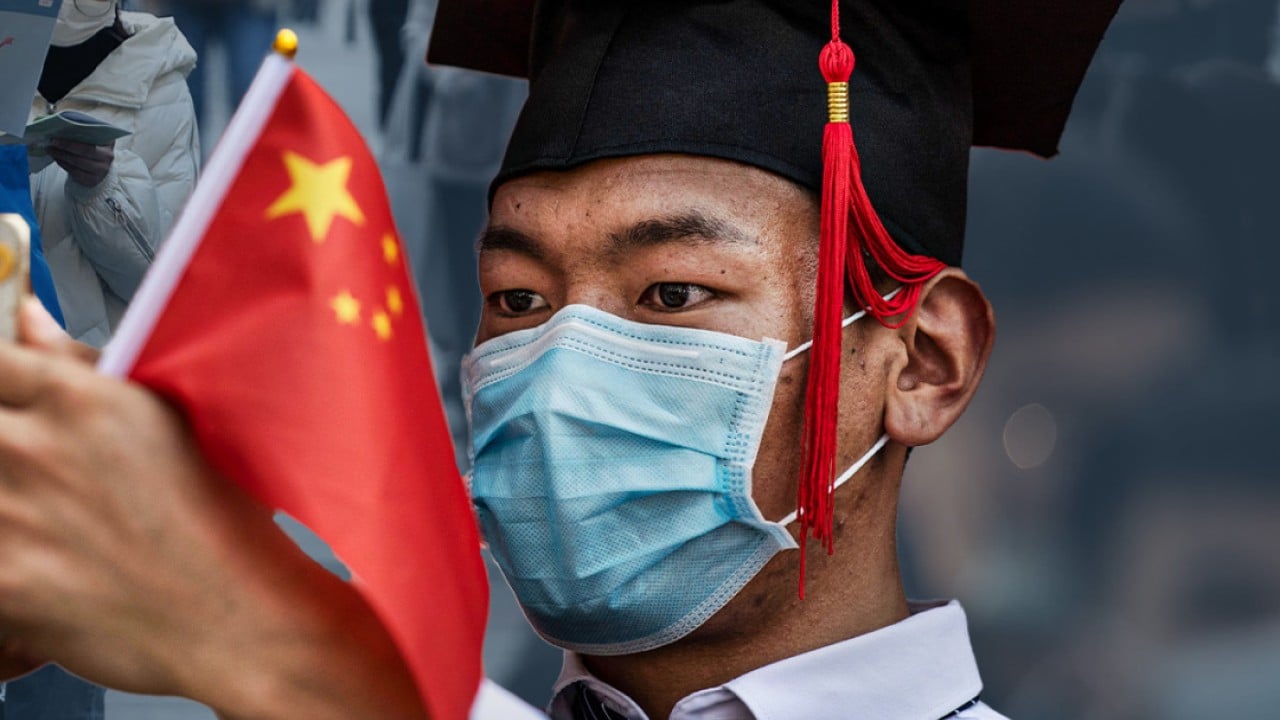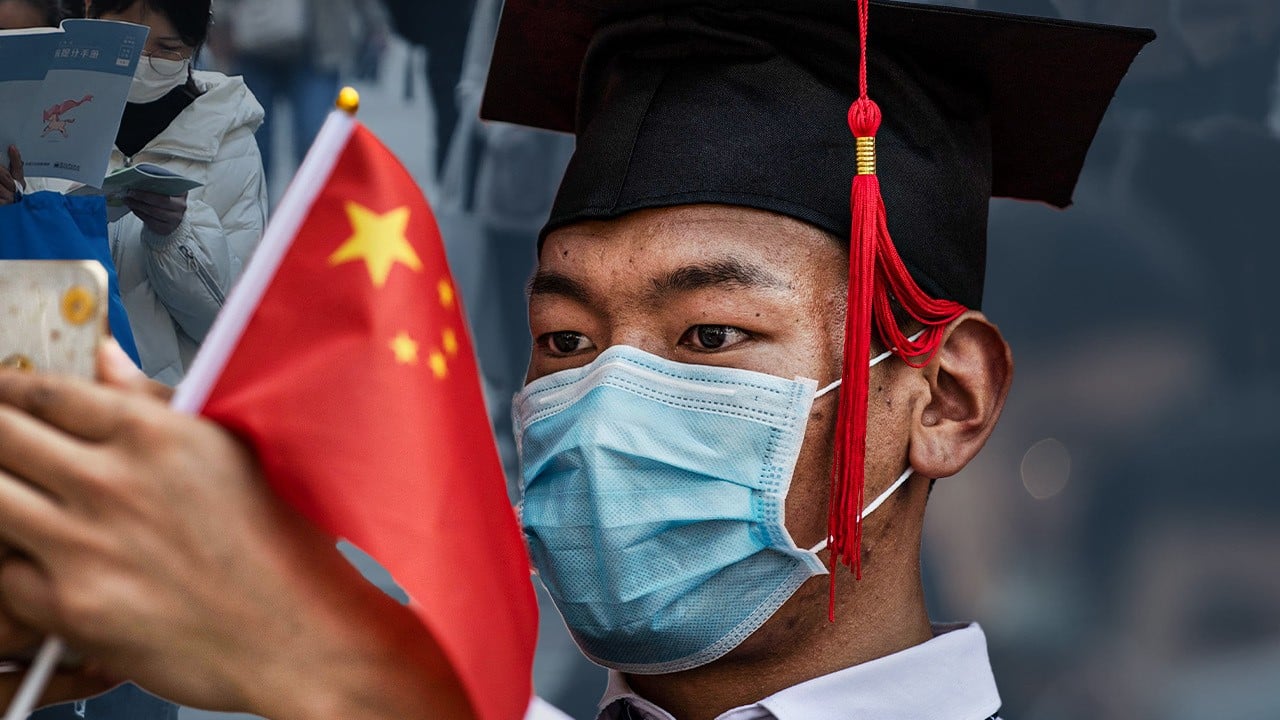With an undergraduate degree in hand, Alan Shen made a smooth transition into his career two years ago by securing a highly coveted job at a private internet firm in the heart of Tianjin, one of China’s most populous cities.
But the entry-level position as an internet moderator and content censor paid just 6,000 yuan (US$840) a month. And with an eye on his future career prospects, the now 24-year-old Shen began re-evaluating whether it would be worth it in the long run.
Within just a few months, he decided to throw in the towel. It wasn’t a hasty decision, though. Shen had received an offer to work as an IT technician at a community hospital in the suburbs, opting to take advantage of a government-led initiative aimed at supporting grass-roots organisations in rural areas.
His salary, of course, took a hit. But he was still pulling in 5,000 yuan a month. And while he acknowledged that the meagre earnings would likely prevent him from ever being able to afford a home, what he got in return was much more valuable – job security and a stable income in a time of uncertainty.

Having witnessed mass layoffs in the tech sector during his brief stint as a moderator, Shen recalled feeling “that this kind of job was unsustainable in the long run, and that I might get laid off at 35”. He was lamenting what has come to be known as the “curse of 35” in China, as many companies have capped the hiring age for certain positions at 35, and with experience being considered less valuable amid shrinking domestic demand.
“So, I quit after I was admitted to the ‘San Zhi Yi Fu’ project,” he said, referencing a nationwide programme launched in 2006 to incentivise university graduates to work in rural schools, agriculture and healthcare, as China aimed to alleviate poverty and advance development in regions lagging behind economically.
With the desire for stability growing amid an increasingly tough job market in recent years, more young Chinese adults like Shen are being lured by the initiative and seeking long-term employment in less-developed regions, contributing to a trend reminiscent of the Down to the Countryside Movement in the Mao Zedong era.
Under Mao’s campaign in the 1960s and ’70s, millions of young educated people in urban China were sent to remote rural villages to live and work among lower-middle-class residents – a form of “re-education” aimed at “developing their talents to the fullest”.
The modern version of that campaign has attracted a total of 552,000 college graduates since its inception 18 years ago, and nearly 70 per cent of them have chosen to stay after finishing their service under the project, which usually lasts two years, the Ministry of Human Resources and Social Security said at a press conference in late July.
Despite having been in place for nearly two decades, the initiative has surged in popularity over the past couple of years as the youth-unemployment rate has remained elevated amid an economic slowdown, and as the central government increases financial support to divert jobseekers to rural areas.
Official statistics for June showed a jobless rate of 13.2 per cent among those aged 16-24 – a metric that began excluding university students last year after including them had pushed the rate over 21 per cent.
Since 2021, programme participants in most provinces have been offered a yearly government salary of more than 60,000 yuan, compared with up to 30,000 yuan before that, the official Xinhua reported.
In comparison, the average annual salary last year for people working in urban private firms – like the one Shen had been working at in Tianjin – was 68,340 yuan, or 5,695 yuan a month, according to the most recent figures from the National Bureau of Statistics.
Last year, it attracted 1.15 million applicants, meaning about 26 people were competing for each opportunity, Xinhua said.
Still, those are better odds than vying directly for a highly sought-after civil service position in China. The record 2.83 million applicants who in November sat the national recruitment exam for central and state organs faced a roughly one in 57 chance of securing a job.
In comparison, the rural job campaign for civil service recruitment may accept applicants without requiring that they sit the exam in some cases.
“It’s a shortcut to getting a civil servant position and provides a stable life,” said Shen, who will complete his two-year service stint in September and then officially become a civil servant.
In contrast with the long hours he put in with his first employer, Shen now works from 9am to 5pm, five days a week, with no overtime.
“And I am not very busy at work,” he attests. “Sometimes I feel a little bored, but most of the time I really enjoy such a life of leisure.”
However, he said there have been indications that the local government may be “having trouble with funds” – a situation seen across the country in debt-plagued regions. Shen said his wages, which come from the local coffers, used to be paid on the 10th of every month, but the payday has been in flux since last year. To earn some extra cash, he said he intends to start a side hustle selling outdoor gear online.
Ryan Ye, who will begin his postgraduate studies this autumn, also sees a high probability that he will eventually work in the countryside, but his motivations are rooted in a desire to cultivate a greater sense of accomplishment than he believes would be possible in big cities.
Having spent the past year at a rural university in Guizhou province under a similar initiative that ensures him an opportunity to join a postgraduate programme at his undergraduate alma mater in Beijing, Ye expressed hope that he will find his way back to the hinterlands to help bring about educational changes.
“I find it somewhat joyful to work in poorer regions and to see the difference I’ve made,” he said. “I was really pleased when the average test scores of the class I taught in the past year improved by 20 per cent.”
Despite his delayed graduation because of the year spent teaching, Ye is in no rush to secure a job in the current employment climate.
“Even if I find a job now, I could be laid off by next year, or I could lose it because the company goes bankrupt,” he said.
A Post review of 23 annual reports from leading Chinese firms found last month that more than half had downsized their workforces last year, while others slashed staff-related expenses to cut costs.
But from the perspective of Jason Lin, who recently took up a rural position as a clerk with the department overseeing agricultural and rural affairs for a township-level government in Fujian province, not everyone shares Ye’s passion for civil service work. Instead, it’s more of a means to an end.
“Most people apply for the ‘San Zhi Yi Fu’ just to better prepare for being a civil servant [in the bigger cities],” he said. “For those who stay [in the rural jobs], most of them had no choice because they failed the civil service exam and would have had to wait a year for another chance to retake it.”
Lin is planning on taking either the postgraduate entrance exam or the civil service exam while serving his two-year stint in the countryside. Ideally, he hopes to end up teaching at a college or working for a higher-level government body.
Meanwhile, critics of the modern-day version of Down to the Countryside, including Chu Zhaohui, a senior researcher with the China National Academy of Educational Sciences, said the initiative neither tackles youth unemployment nor helps revitalise the countryside.
“The past decades have proved that the key to curbing the jobless rate is to boost the private sector,” which traditionally provides more than 80 per cent of urban employment but is now struggling amid a bumpy post-Covid economic recovery, he noted.
The campaign is also ill-suited to narrow the urban-rural divide, as talent is difficult to retain unless rural and urban dwellers share equal public services and property rights, he said.
I would say there are just too few stable job opportunities for college graduates
Although authorities have pledged to bridge that gap for decades, educational and medical resources distributed to rural and urban areas remain disparate, and there has been little change to a land-ownership system that keeps rural residents from raising capital from their property.
However, change could be on the cards after the central government vowed last month to “allow farmers to revitalise and utilise their legally owned homes via renting, becoming shareholders, and cooperating with others”.
Meanwhile, the deteriorating financial conditions of local governments also mean that job openings in the public sector are scarce, despite the craze for “iron rice bowl” jobs, according to Zhai Xiaoqing, an official with a villagers’ committee in Jiaxing, Zhejiang province.
His committee, which had frozen headcounts for the past few years, saw two recent job openings in a nearby village attract more than 100 applicants, and most held a bachelor’s degree, he said.
Holders of lower degrees are normally competent enough for such a job, he explained.
“I would say there are just too few stable job opportunities for college graduates,” he observed.



